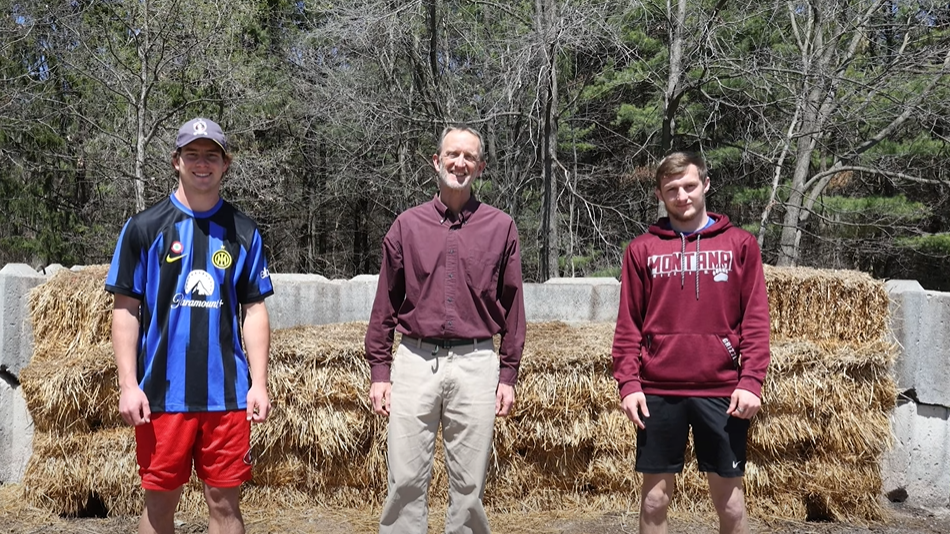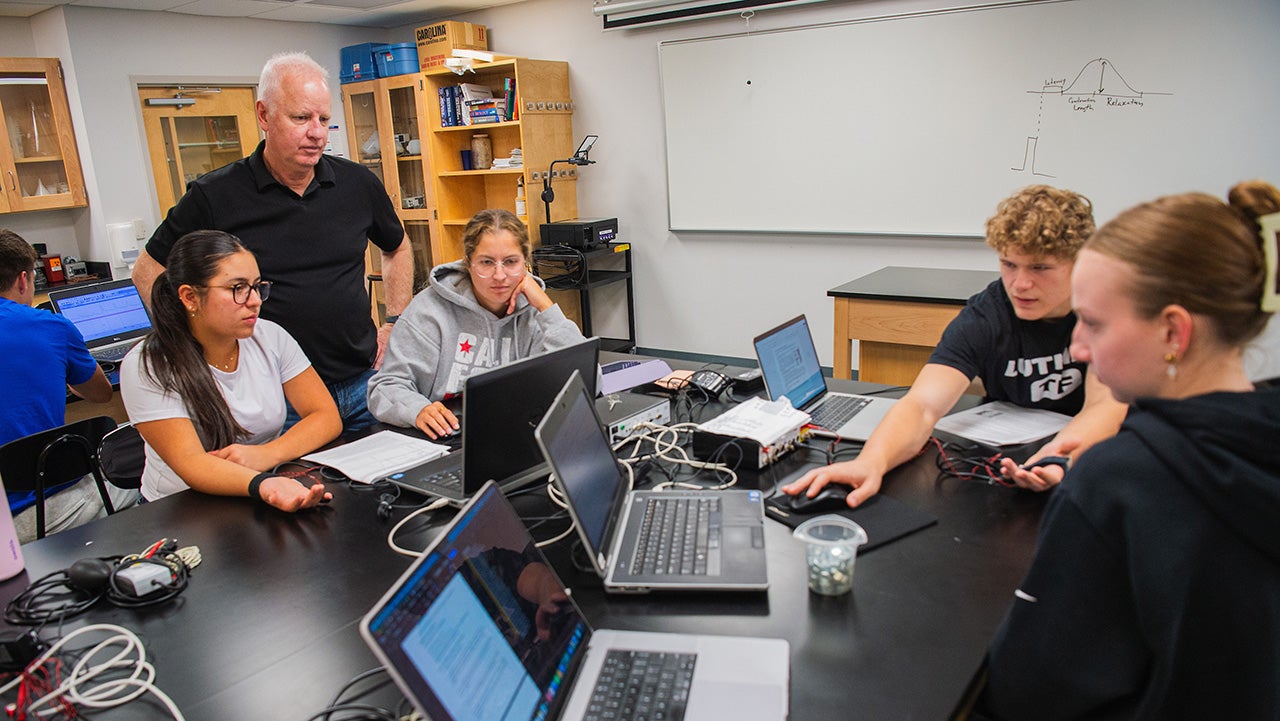Learn how Luther’s Cafeteria is reducing food waste through community partnerships
Every day in the Luther Cafeteria, potential food waste is diverted to make rich compost to replenish the land, and prepared food that was not served is repackaged to serve food insecure people in Decorah and surrounding areas. A Luther video highlights how the college is reducing food waste, motivated by its commitment to environmental and civic sustainability.
This work toward the college’s Zero Waste goal exemplifies Luther’s Civic Sustainability Initiative. Since 2020, this Luther initiative has developed partnerships between student, faculty, and staff groups and similarly minded organizations in the Decorah and northeast Iowa community.
Working toward Zero Waste
This video highlights how the college is reducing food waste, motivated by its commitment to environmental and civic sustainability.
Reducing food waste through composting
“Food waste used to be the largest element coming from Luther’s Union and going into the landfill,” said Jon Jensen, director of the Center for Sustainable Communities which runs the Caf to Community program. “Composting is the best and most ecological way to deal with our food waste.”
Located in the Dahl Centennial Union, the Luther Cafeteria (commonly known as the Caf) is the resident dining hall.
Notably, the Luther Caf has no trash cans. Instead, the Caf staff separates all compostable food waste and napkins in the dish room, where they are rinsed into a trough, sent into a pulper, and collected in buckets. Compostable scraps created in the food preparation process (such as stems and peels) are also collected by the Caf staff for composting.

Jon Jensen (center), director of the Center for Sustainable Communities, and two student sustainability workers stand at the composting site on the Luther farm.
Some of the food waste is taken to the Luther farm, which is on the edge of campus. There, Luther has its own compost pile for food waste. Student workers in sustainability collect compostable food waste from bins throughout campus and from the Caf and bring it to the Luther farm.
Luther has also worked with the city of Decorah to compost its food waste. The city worked with residents to develop a sustainability plan, which includes the city being zero-waste by 2040. To achieve this goal, the city received a grant to reduce food waste in the Winneshiek County Landfill.
“As part of this grant, one of the community partners was Luther College,” said former city engineer Jeremy Bril. “The city is working with Luther to collect some of the food waste that Luther’s already collecting on campus.”
About twice a week, city workers come to collect food waste and take it to the city’s yard waste site. The city collects an average of 2,000 pounds of food waste from Luther.
Donating unused food to local pantries
Luther also has the Caf to Community program, which aims to ensure good food goes to people who need it — another way to reduce food waste. This program not only strengthens Luther’s environmental sustainability, but also extends the notion of civic sustainability and builds communities of mutual support.
Because Luther serves buffet-style food prepared in advance, some of the food is left over and not served. Caf to Community volunteers collect this unused food and repackage it into single-serving frozen meals. It is delivered to local pantries such as the Decorah Community Food Pantry and Northeast Iowa Community Action.
Caf to Community is a student-run program. Rising senior Owen Matzek has been the assistant manager of the program. He will take over as manager in fall 2024.
Related Posts

“Nordic Choir has an exciting program to share with audiences from Iowa City to Orlando,” said Andrew Last, associate professor of music and director of choral activities.

Nearly 570 students were named to Luther College’s Fall 2025 Dean’s List.
Contact Information
Michelle Volkmann
Media Relations Specialist
Phone: 563-387-1417